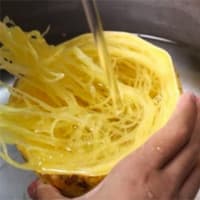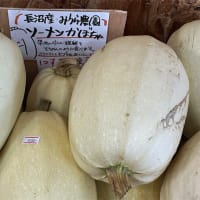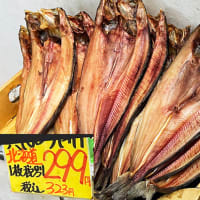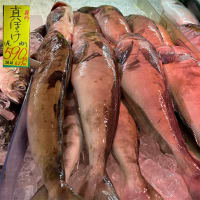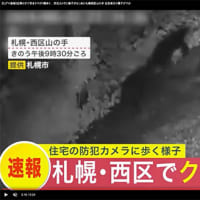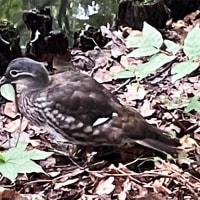


昨日ブログを午前6時前にアップさせて、気になっていた降雪具合を確認したら、マジでやばいレベルの降り方。2枚目の図は札幌管区気象台が発表するわが家の至近箇所(札幌市西区西野)での降雪データから2/11午前9時までのもの。
確認するとおおむね30cm程度の降雪が見られている。
さっそく早朝から夫婦共同作業。しかしおかげさまで新潟以南地域のような湿度過重な雪ではなく、粉雪っぽい軽い雪質。大型のママさんダンプでたっぷり満載して移動させても、腰から下半身に気合いを入れてやれば、けっこうラク。ということでご近所同士の「助け合い」もあって、わたしどもの敷地部分+借りている駐車場などが約1時間チョットで完了。
わが家は本来、煉瓦敷きにした駐車場については全面ロードヒーティングを敷設したのですが、敷設はしたけれど地球温暖化を加速させているように思えてしまったこと、石油熱源による加温という「雪対策」への反省みたいな気分が盛り上がってしまった。
また、そうやっても道路との段差解消がむしろ困難になるということで、自然的な積雪レベル調整・確保を優先させてある程度は堆雪層を容認しながら、結局は人力除雪にしているのです。
で、職住一体建物で敷地利用の余裕を考えていなかったので、わが家では除雪機の格納スペースは確保できずしまいだった。このあたりは自分の家づくりでの見通しの甘さと反省している。
しかしそういう人力除雪でも「堆雪場所整備」について慣習的にご近所の「お付き合い」として除雪機での手助けをありがたくも受けられている。
ご近所で駐車場として借りている敷地の持ち主団体や隣居の方からの善意。その駐車場の除雪をされる「ついで」に、近接のわが家敷地からの排雪の堆雪場所整備に対してそのたびヘルプしてくれる。まことに感謝。
ただそういう無言の関係性には少なくとも除雪についての時間的な「頃合い感」の共有がある。機械除雪に取り組む時間帯的な約束事が、問わず語りに存在しているのですね。あうんの呼吸での「ムラ」社会的な共助約束事とでも言えるでしょうか。
で、さらに「絶対にお礼の品などは遠慮します」という約束事が自然慣習的に交わされている。こういう規範の成立には、やはりお互いさまという「ムラ」共助の考えがある。
こうした共助思想というものは、日本人本来の生き方としての社会規範で、やがて「寄り合い」というような場で取り決めとして明示的になっていく部分なのでしょうが、都市の中のムラとしては、まだまだ「あうんの呼吸」段階と未成熟な部分。
キビシイ大雪ですが、それへの対応という部分で日本人の精神性の基盤としての「ムラ」意識が、根強い慣習として復元再生されていることが実感できる。
写真はすべての作業が終わったあと今朝になって「公共」除雪車が入った後の様子。ほぼ「ムラ」共同体的共助で済んだあと、申し訳的に除雪された様子がわかると思います(笑)。別に公共の仕事を批判するのではなく、これでいいのではないか、という意味です。
English version⬇
Japanese-style "Mutual Aid" in 30cm of heavy snow: Mura and choosing a comfortable place to live - 3
Mutual aid practices at snow-clearing composting sites in Hokkaido. When snow piles on the road become too high, a snow plow is indispensable. Mura" social help between neighbors. ・・・・・・.
The second chart shows snowfall data from 9:00 a.m. on Feb. 11 at a location near my house (Nishino, Nishi-ku, Sapporo), as reported by the Sapporo District Meteorological Observatory.
The second chart shows snowfall data from 9:00 a.m. on Feb. 11, according to the Sapporo District Meteorological Observatory.
The couple immediately began working together early in the morning. Thanks to the snowfall, however, the snow was light and powdery, not humid and heavy as in areas south of Niigata. Even with a large dump truck full of snow, it was easy to move it around, as long as you put some energy into your lower back and lower body. So, with the help of our neighbors, we were able to complete our property plus a rented parking lot in about an hour or so.
We had originally installed road heating for the entire brick parking lot, but we felt that we were accelerating global warming and that we were reflecting on the "snow countermeasure" of heating with an oil heat source, even though we had installed the heating system.
Also, even if we did so, it would be rather difficult to eliminate the difference in level with the road, so we ended up using human-powered snow removal, while tolerating a composting snow layer to some extent, giving priority to adjusting and securing the natural snow accumulation level.
In the end, we were not able to secure storage space for a snowplow in our house because we did not consider the space available on the site for a building that integrates work and residence. I regret my lack of foresight in this area in the construction of my house.
However, even with such manpower, I am grateful for the help of the snowplow as part of our customary "association" with our neighbors in the "maintenance of snow composting sites.
The goodwill of the owner of the lot rented as a parking lot in the neighborhood and the people living next door. They help us every time we remove snow from the parking lot and maintain the snow removal area from our neighboring property. I really appreciate it.
However, in such a silent relationship, there is at least a shared sense of timeliness in snow removal. There is a time-zone commitment to mechanical snow removal that exists in the conversation regardless of the time of day. It could be called a "mura" social mutual aid agreement.
In addition, there is a natural and customary promise to refrain from giving gifts of gratitude. The establishment of such norms is based on the idea of "mura" mutual assistance.
This idea of mutual aid is a social norm that is inherent to the Japanese way of life, and will eventually become explicit in the form of agreements at "yoriai," or gatherings, but it is still in its infancy in urban villages, where it is still at the "aun no kowtow" stage.
Although the snowfall has been severe, we can feel that the sense of "mura" as the foundation of Japanese spirituality is being restored and revived as a deep-rooted custom in response to the heavy snowfall.
The photo shows the scene after all the work was completed and the "public" snowplows entered the area this morning. You can see how the snow was removed apologetically after almost all the "mura" communal mutual aid was done (laughs). I don't mean to criticize the public work, but rather to say that this is fine.











